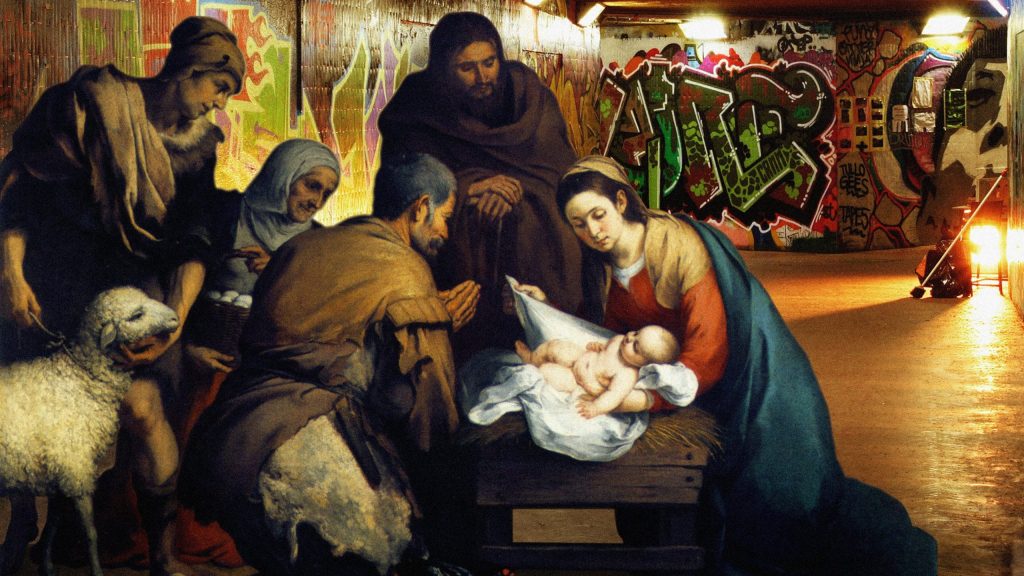It never ceases to amaze me how seemingly random events can congeal into a common thread of thought. This almost preternatural algorithm made itself known to me as three overtly unconnected minor events happened that, together, got me thinking I was on to a big Advent message.
It began with a Methuselah moment. Sadly, those are becoming more frequent for me. This one involved a pleasant conversation with a 20-something person about my previous manifestation in the television writing business. I regaled her with a story about someone who I thought was a pretty famous television star of the past. Halfway through our exchange, I realized this once nationally beloved celebrity was not registering the tiniest blip on this young person’s popular culture radar screen.
It was quite a tutorial on the fleeting nature of fame. The once-celebrated person who meant nothing to this young person had spent lots of energy, marriages, and money to gain the fame he achieved, and now, less than a decade after his death, he is forgotten by a substantial percentage of the American populace.
I ask for some forbearance as the next random act that occurred was a vanity project of mine: I am taking some free online classes in history and the classical world merely for my own enjoyment. Soon after my exchange with this young person, I was listening to a lecture on ancient Athens and Sparta. It was something the professor running the online course on Greek antiquity said that connected the dots for me.
He was quoting a Greek historian whose name would crash my auto correct if I tried to spell it. According to this great mind of antiquity, the Spartans had a problem with fleeting fame and predicted they would only be known by their ruins. The professor noted that visits to Athens find temples and official buildings still standing in Greece, but on a visit to the land where the Spartan City-State was located, one only finds foundations of buildings that once were. The only people who remember what those foundations were holding up are professors in institutes of higher education.
The Spartans, thanks to popular culture of later vintage, may be known as great warriors and pretty tough dudes, if you ask the Persian Army, but their advanced civilization, with its checks and balances and its freedom (if you were a Spartan, not a Spartan slave), have all been relegated to the mists of time.
Even the greatness of Athens, with its all-star lineup of Socrates, Plato, and Aristotle, are mostly remembered only in certain halls of academia. If I started telling the same young person who was not as well versed on the “ancient” history of 1960s television about Plato’s “Republic,” I don’t think I would have gotten very far.
The same goes for ancient Rome. History geeks know about it, but few other people walking around know or care to know much about it.
So of course, these two disconnected events made me think about Advent. When I worked for a faith-based nonprofit, Advent season was full-throated. You only heard “Merry Christmas,” and religious-themed Christmas music was on everyone’s computer. I now work for a secular nonprofit, and although the office is decorated for the season, the “season” is overtly nonspecific.
Yet celebrate we do. Holiday still has “holy” as its root, and even though many of my co-workers, better people than me, may not share a belief in the events of that first Noel, I can’t help but think God has a plan to wind his way into hearts the way Hollywood celebrities and Spartan warrior-kings cannot.
I’ve seen this in my own family as well, with nieces and nephews who have jettisoned their Catholic faith but not the traditions that come with Christmas. They may go out of their way to say “Happy Holidays” and to go a little overboard with the “Star Wars” holiday-themed yard decorations, but deep down they know, just like my co-workers know, what is behind those very traditions they are diluting.
Ancient people and not-so-ancient Hollywood celebrities are now imprisoned between the covers of books and put on shelves. But 2,000 years ago, in a backwater town of a backwater province that was more trouble than it was worth for the mighty Roman Empire, an eternal King was born. A lot of people may not know Leonidas from Leonardo Di Caprio, but they know the name Jesus and they know what Dec. 25 is.

